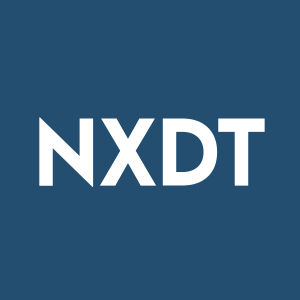[SCHEDULE 13G] NexPoint Diversified Real Estate Trust SEC Filing
Morgan Stanley and its subsidiary Morgan Stanley Smith Barney LLC filed a Schedule 13G reporting passive ownership of NexPoint Diversified Real Estate Trust’s 5.50% Series A cumulative preferred shares (CUSIP 65340G304). As of 30 June 2025 they beneficially own 205,457 shares, equal to 6.1 % of the class. The filing shows shared dispositive power over all shares and shared voting power over 3 shares, with no sole voting or dispositive authority. The shares were acquired in the ordinary course of business and are not intended to influence control of the issuer. Both entities are Delaware-organized and list their principal office at 1585 Broadway, New York. Certifications note that the disclosure aggregates positions of certain Morgan Stanley operating units as permitted under SEC Release 34-39538.
- None.
- None.
Insights
TL;DR: 6.1 % stake signals modest institutional support; no control intent.
The 13G shows Morgan Stanley passively holding 205,457 preferred shares, just above the 5 % reporting threshold. While the absolute dollar value is unstated, a 6.1 % position in this low-liquidity preferred security may enhance trading depth and demonstrates institutional appetite. The absence of sole voting power and the ordinary-course certification confirm that this is not an activist move, limiting governance impact. For investors, the key takeaway is incremental validation of the security’s investability rather than a catalyst for strategic change.
TL;DR: Disclosure is routine; governance influence remains negligible.
Because voting rights on the Series A preferred are minimal (only 3 votes shared), Morgan Stanley’s stake does not shift control dynamics. The filing’s passive intent language and lack of group activity under Items 5-9 further reduce governance significance. Consequently, board composition, dividends and strategic direction at NexPoint Diversified Real Estate Trust remain unaffected. Compliance with Release 34-39538 indicates transparent aggregation practices, but overall impact on issuer governance is neutral.






